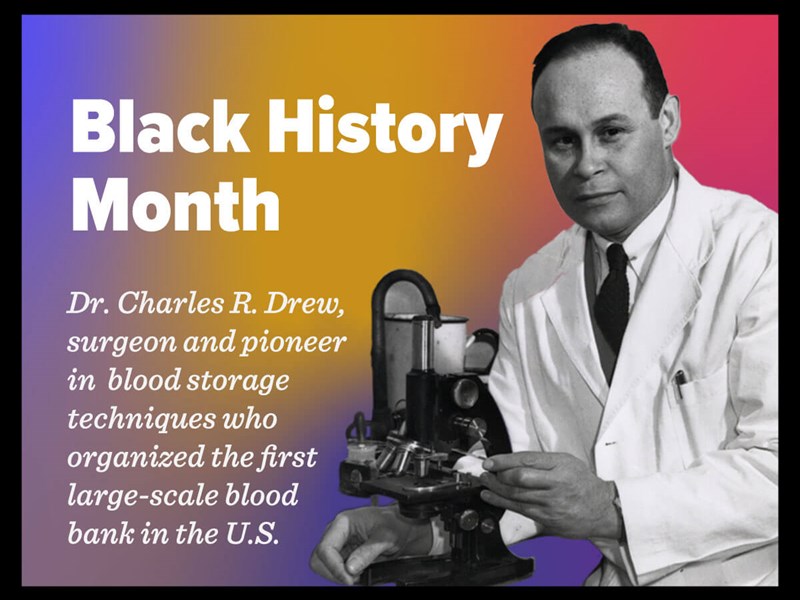‘Father of Blood Banking’ fought for racial equality

During Black History Month, Gulf Coast Regional Blood Center strives to honor the legacy of Dr. Charles Drew—An African American doctor who was a pioneer in the blood banking industry in the early 1900s.
His accomplishments have long been lauded by those of us who continue this crucial work in our communities. But I recently did some research that shed more light on his accomplishments, which I believe genuinely classify Dr. Drew as a hero.
(It’s worth noting that he was mentioned in the movie “Soul,” the Disney movie released last year starring Jamie Foxx as “Joe.” “Not everyone can be Charles Drew inventing blood transfusions,” Joe’s barber advises during a haircut.)
But did you know that Dr. Drew, who would one day be known as the “Father of Blood Banking,” couldn’t contribute to the very program he helped establish because of his skin color?
A little background: In 1938, while working on his doctorate (He would become the first Black student to earn a Doctorate of Medical Science from Columbia University), Dr. Drew found that when he separated plasma from a whole blood donation, he could store or “bank” it longer. He also found that plasma can be distributed to anyone, regardless of blood type.
During World War II, Dr. Drew’s work was crucial, and he was tapped to lead the “Blood for Britain” program in which plasma from New York was sent to the battle lines to treat wounded soldiers. It is reported that he collected 14,500 pints of plasma through his efforts.
Dr. Drew was then selected to lead blood collections for the military. This only lasted a few months. Leaders within the military would not accept blood from the Black community. They later revised their position, requesting that it be stored separately and designated solely for Black soldiers.
Dr. Drew resigned in protest, and he later went on to work as chief surgeon for Freedmen’s Hospital in Washington, D.C., as well as head of surgery at Howard University.
In 1950, Dr. Drew died tragically after a car crash. It’s incredible to think about everything he was able to accomplish in just 45 years of life. Can you imagine the countless lives he has touched through his work? I can’t.
I don’t know about you, but I am truly inspired the more I learn about Dr. Drew and his contributions to the world through blood banking.
More than 70 years later, I challenge you to honor him and his work by donating blood. You never know whose life you may impact.